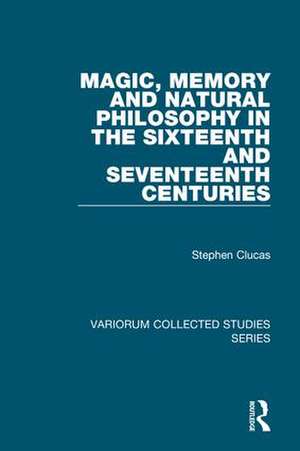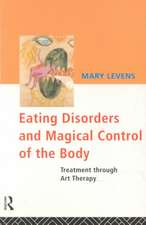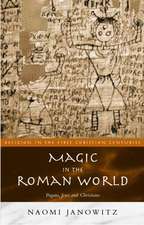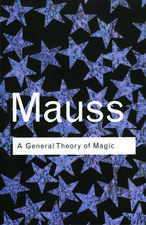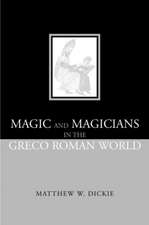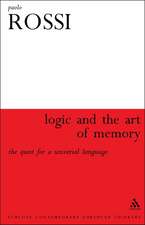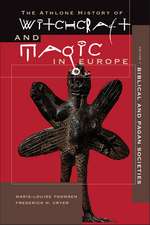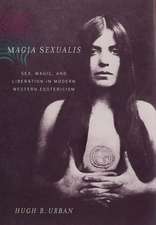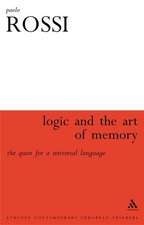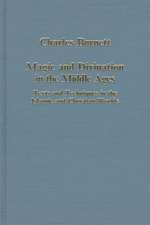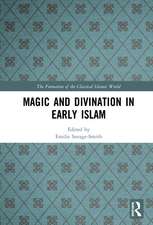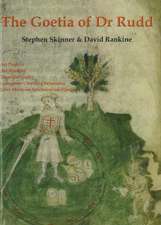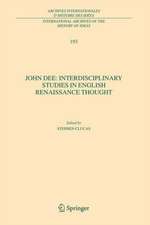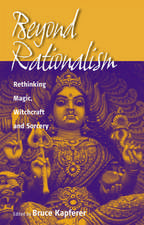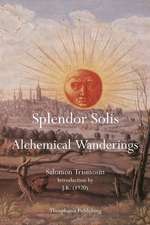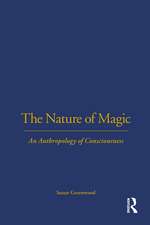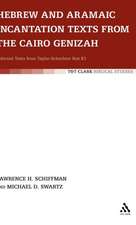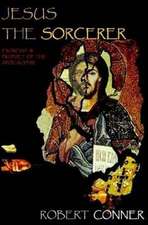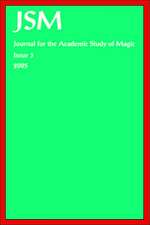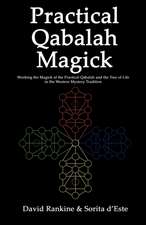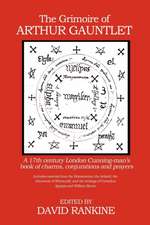Magic, Memory and Natural Philosophy in the Sixteenth and Seventeenth Centuries: Variorum Collected Studies
Autor Stephen Clucasen Limba Engleză Hardback – 28 apr 2011
Din seria Variorum Collected Studies
-
 Preț: 313.38 lei
Preț: 313.38 lei -
 Preț: 311.41 lei
Preț: 311.41 lei -
 Preț: 308.04 lei
Preț: 308.04 lei -
 Preț: 325.68 lei
Preț: 325.68 lei -
 Preț: 406.12 lei
Preț: 406.12 lei -
 Preț: 311.18 lei
Preț: 311.18 lei -
 Preț: 325.31 lei
Preț: 325.31 lei -
 Preț: 396.01 lei
Preț: 396.01 lei - 9%
 Preț: 1039.89 lei
Preț: 1039.89 lei -
 Preț: 266.20 lei
Preț: 266.20 lei -
 Preț: 358.42 lei
Preț: 358.42 lei - 9%
 Preț: 938.10 lei
Preț: 938.10 lei -
 Preț: 351.48 lei
Preț: 351.48 lei - 9%
 Preț: 938.86 lei
Preț: 938.86 lei -
 Preț: 335.37 lei
Preț: 335.37 lei - 9%
 Preț: 937.14 lei
Preț: 937.14 lei -
 Preț: 351.42 lei
Preț: 351.42 lei -
 Preț: 328.48 lei
Preț: 328.48 lei - 38%
 Preț: 766.84 lei
Preț: 766.84 lei - 23%
 Preț: 315.48 lei
Preț: 315.48 lei - 36%
 Preț: 740.06 lei
Preț: 740.06 lei - 38%
 Preț: 764.20 lei
Preț: 764.20 lei - 39%
 Preț: 684.75 lei
Preț: 684.75 lei - 29%
 Preț: 247.40 lei
Preț: 247.40 lei - 37%
 Preț: 488.89 lei
Preț: 488.89 lei - 38%
 Preț: 766.91 lei
Preț: 766.91 lei - 38%
 Preț: 769.51 lei
Preț: 769.51 lei - 38%
 Preț: 769.85 lei
Preț: 769.85 lei - 36%
 Preț: 823.43 lei
Preț: 823.43 lei - 25%
 Preț: 225.28 lei
Preț: 225.28 lei - 27%
 Preț: 225.54 lei
Preț: 225.54 lei - 38%
 Preț: 767.07 lei
Preț: 767.07 lei - 38%
 Preț: 764.20 lei
Preț: 764.20 lei - 36%
 Preț: 736.38 lei
Preț: 736.38 lei - 34%
 Preț: 738.43 lei
Preț: 738.43 lei - 27%
 Preț: 226.52 lei
Preț: 226.52 lei - 37%
 Preț: 491.66 lei
Preț: 491.66 lei - 37%
 Preț: 485.78 lei
Preț: 485.78 lei - 37%
 Preț: 485.78 lei
Preț: 485.78 lei - 38%
 Preț: 766.34 lei
Preț: 766.34 lei - 36%
 Preț: 739.17 lei
Preț: 739.17 lei - 34%
 Preț: 473.94 lei
Preț: 473.94 lei - 18%
 Preț: 843.63 lei
Preț: 843.63 lei - 38%
 Preț: 774.91 lei
Preț: 774.91 lei - 38%
 Preț: 769.92 lei
Preț: 769.92 lei - 38%
 Preț: 764.20 lei
Preț: 764.20 lei - 50%
 Preț: 488.81 lei
Preț: 488.81 lei - 36%
 Preț: 488.49 lei
Preț: 488.49 lei - 38%
 Preț: 769.10 lei
Preț: 769.10 lei - 38%
 Preț: 766.99 lei
Preț: 766.99 lei
Preț: 824.73 lei
Preț vechi: 1284.60 lei
-36% Nou
Puncte Express: 1237
Preț estimativ în valută:
157.86€ • 171.53$ • 132.69£
157.86€ • 171.53$ • 132.69£
Carte tipărită la comandă
Livrare economică 21 aprilie-05 mai
Preluare comenzi: 021 569.72.76
Specificații
ISBN-13: 9781409419754
ISBN-10: 1409419754
Pagini: 332
Dimensiuni: 150 x 224 mm
Greutate: 0.72 kg
Ediția:1
Editura: Taylor & Francis
Colecția Routledge
Seria Variorum Collected Studies
Locul publicării:Oxford, United Kingdom
ISBN-10: 1409419754
Pagini: 332
Dimensiuni: 150 x 224 mm
Greutate: 0.72 kg
Ediția:1
Editura: Taylor & Francis
Colecția Routledge
Seria Variorum Collected Studies
Locul publicării:Oxford, United Kingdom
Cuprins
Contents: Preface; John Dee's Angelic Conversations and the ars notoria: Renaissance magic and mediaeval theurgy; Enthusiasm and "damnable curiosity": Meric Casaubon and John Dee; Non est legendum sed inspicendum solum: inspectival knowledge and the visual logic of John Dee's Liber Mysteriorum; In Campo Fantastico: Alexander Dicson, Walter Warner and Brunian mnemonics; Giordano Bruno's De imaginum, signorum et idearum compositione: art, magic and mnemotechnics; Amorem, artem, magiam, mathesim: Brunian images and the domestication of the soul; Galileo, Bruno and the rhetoric of dialogue in 17th-century natural philosophy; Corpuscular matter theory in the Northumberland circle; The atomism of the Cavendish circle: a reappraisal; "The infinite variety of formes and magnitudes": 16th- and 17th-century English corpuscular philosophy and Aristotelian theories of matter and form; In search of 'The True Logick': methodological eclecticism among the 'Baconian reformers'; The correspondence of a 17th-century "chymicall gentleman": Sir Cheney Culpeper and the chemical interests of the Hartlib circle; Index.
Notă biografică
Stephen Clucas is Reader in Early Modern Intellectual History at Birkbeck, University of London, U.K., and is co-Editor of the journal Intellectual History Review.
Recenzii
'This is rigorous, high-level scholarship, essential for anyone interested in the disciplinary contexts or intellectual traditions of early modern alchemy and chemistry. By placing his subjects within appropriate theological and philosophical milieu, Clucas offers a persuasive account of how the spiritual dimensions of disciplines such as alchemy contributed to the rise of the empirical natural philosophy.' Ambix 'Magic, Memory and Natural Philosophy in the Sixteenth and Seventeenth Centuries will be primarily of interest to historians of science and magic in the late sixteenth and seventeenth centuries. Its usefulness is enhanced by an index.' Sixteenth Century Studies Journal '... richly documented and varied essays... organised around a number of specific themes disposed in a historical sequence that give the volume a unity of narrative and intent that not all collections of essays possess.' Aestimatio 'Taken together, this is an impressive collection, combative where it has to be, but thoroughly based on a deep understanding of the classical, medieval, and Renaissance mind.' Renaissance Quarterly
Descriere
These articles address the complex interactions between religion, natural philosophy and magic in sixteenth- and seventeenth-century Europe. The essays on the Elizabethan mathematician John Dee show that his angelic conversations owed a significant debt to medieval magical traditions and how Dee's attempts to communicate with spirits were used to serve specific religious agendas in the mid-seventeenth century. The essays devoted to Giordano Bruno offer a reappraisal of the magical orientation of the Italian philosopher's mnemotechnical and Lullist writings of the 1580s and 90s. The three studies on the atomistic or corpuscularian natural philosophy of the Northumberland and Cavendish circles, argue that there was a distinct English corpuscularian tradition prior to the Gassendian influence in the 1640s and 50s. Finally, two essays on the seventeenth-century Intelligencer Samuel Hartlib and his correspondents show how religion alchemy and natural philosophy interacted during the 'Puritan Revolution'.
